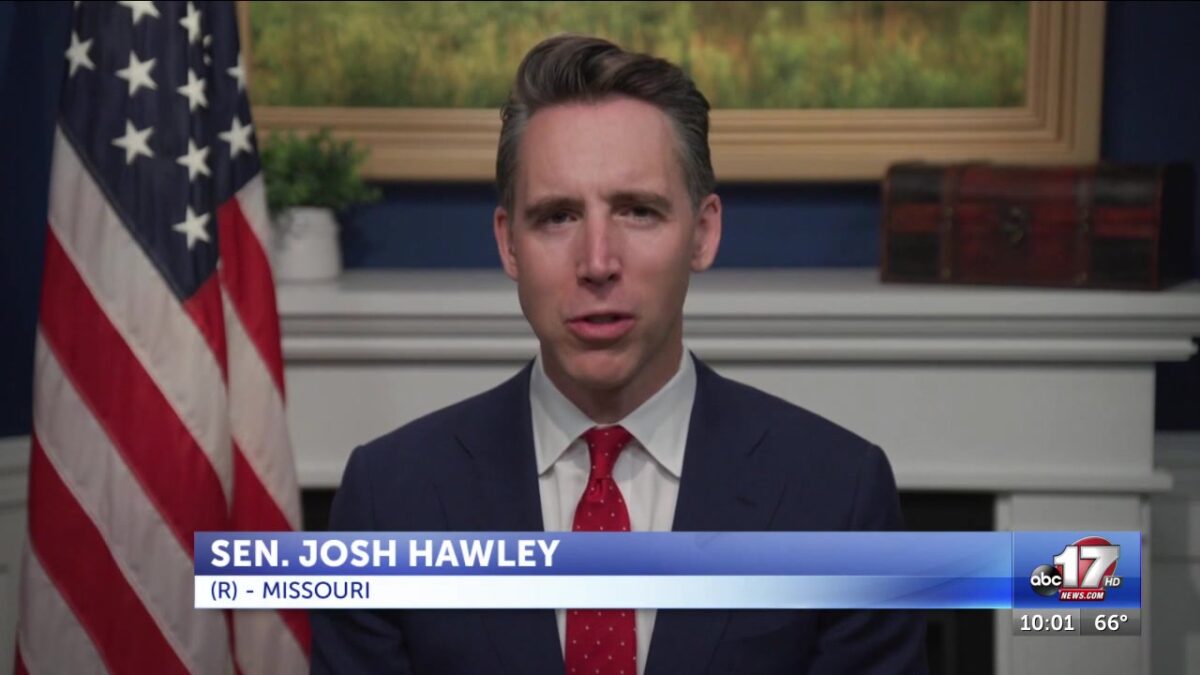MU professor weighs in on Sen. Hawley’s tariff rebate proposal

Mitchell Kaminski
COLUMBIA, Mo. (KMIZ)
A new bill introduced by Sen. Josh Hawley could provide American families with rebate checks worth thousands of dollars, using revenue generated from tariffs under the Trump administration.
The proposal came just days before President Donald Trump signed an executive order Thursday night imposing steep tariffs on 66 countries—including the European Union, Taiwan, and the Falkland Islands—set to take effect on Aug. 7. The tariffs were initially proposed for April but had been postponed twice, most recently to Aug. 1.
Hawley unveiled the legislation on Monday, aiming to return tariff revenue directly to U.S. households in the form of rebate checks.
Hawley says he got the idea from Trump, who floated the idea of rebate checks. This prompted the Missouri senator to draft legislation similar to the one he co-sponsored with Senator Bernie Sanders (I-VT) that provided rebate checks to people during the COVID-19 pandemic.
Hawley’s American Worker Rebate Act of 2025 aims to hand out at least $600 per person and dependent child, with up to $2,400 for a family of four. If the bill passes, the rebates would be issued as refundable tax credits linked to the 2025 tax year, potentially beginning later this year or in early 2026. However, the rebate would be reduced by 5% for joint filers earning more than $150,000 and individuals making more than $75,000.
“I want to be clear, it would phase out for upper incomes,” Hawley told ABC 17 News. “What a great message to send to the working people of Missouri and the whole country that Trump’s policies are working for them and their government is working for them. I can’t think of a better thing to do than give them a piece of this wealth that frankly, they have earned.”
Some of Hawley’s constituents have poured cold water on the idea, like Sen Ron Johnson (R-WI), who suggested that the money should go toward paying down the deficit.
When asked if the idea of offering rebate checks would be counterintuitive to some of the cuts that DOGE made to reduce the deficit, Hawley brushed off the concern, saying that it isn’t new spending but rather extra money the government has gotten “because of the success of the president’s policies.”
“The reason that the tariff money is coming in is because we’ve got all of these companies that want to do business in the United States of America, that want to have access to American workers and are willing to pay for it, Hawley said. “I notice that the Wall Street crowd they get whatever they want, whenever they want it in terms of tax rules and special treatment and loopholes and all the rest, all the corporations get it. Why shouldn’t working people get a piece of this new wealth that, frankly, their labor is creating?”
The proposal emerges amid growing concerns about rising costs driven by tariffs on imported goods.
Hawley says that the US is on track to raise over $150 billion from tariff revenues this year. Through June, the US has already raised $108 billion in tariff revenue alone. The Treasury Department also said on July 25, that the U.S. government posted a $27 billion surplus in June.
According to a July 28 analysis from The Budget Lab at Yale, Trump’s tariffs could cost U.S. households an average of $2,400 in 2025, as companies pass higher tariff costs on to consumers through increased prices.
Joe Haslag, a professor in the University of Missouri’s Department of Economics, says that while tariffs do generate revenue, they also distort markets by altering supply, demand, or prices. Prices ideally reflect the true economic cost of production—including wages, equipment, and profits—but tariffs push prices away from that baseline. As a result, markets become less efficient, and consumers end up paying more for products while getting less of them in return.
“What Senator Hawley is proposing is to take the revenues from that and just give it back to people, that’s going to get rid of the transfer part of the tariff. It won’t get rid of the distortion,” Haslag explained. “In other words, the tariff itself is going to create this problem and there’s a technical name for it. The technical name is dead weight loss.”
Haslag emphasized that the rebates don’t undo the underlying harm caused by tariffs.
“Just a simple return of that check will make their pockets feel better. But it’s not going to get rid of the deleterious effects of the tariffs,” Haslag said. “They distort prices and they end up harming U.S. consumers.”
However, Haslag added that handing out rebate checks does have a return on investment for lawmakers.
“There’s a potential political return, right? I mean, you can you can curry a lot of favor with people if you’re putting money back into their pockets,” Haslag said. “But there are a lot of options on the table, reducing the government deficit, which seems to be coming down.”